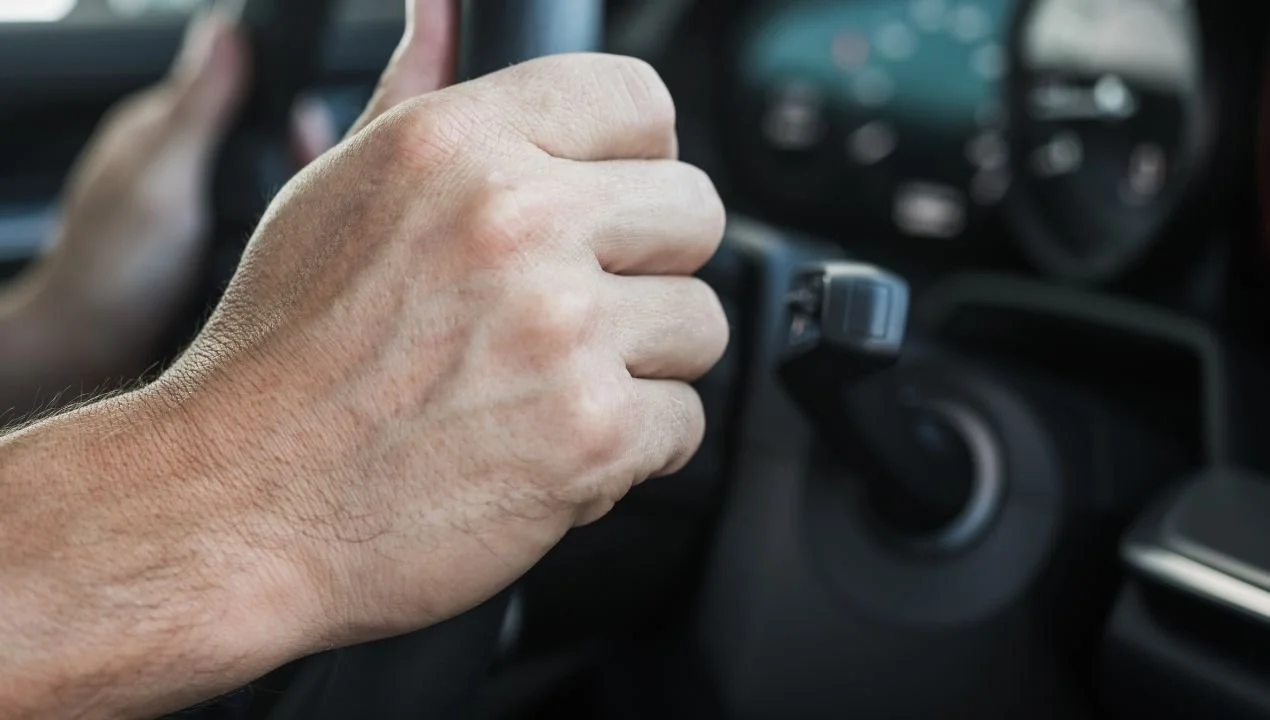Criminal Defense: Impaired Driving - DUI/DWI Penalties in Michigan
If you've ever found yourself on the wrong side of a DUI or DWI charge, you know it's no walk in the park. Here in Michigan, impaired driving laws are strict, and the penalties can be life-altering. Understanding these penalties is crucial, whether you're facing a first offense or grappling with the repercussions of a third strike.
In this article, we'll break down the ins and outs of DUI/DWI penalties in Michigan, explore the various defenses available, and provide some insights into what you can expect if you're charged with impaired driving.
What Is DUI vs. DWI in Michigan?
Let's start by clearing up some confusion: DUI and DWI. What do these terms mean, and how do they differ?
DUI (Driving Under the Influence)
In Michigan, DUI stands for Driving Under the Influence, and it typically refers to operating a vehicle while impaired by alcohol. The legal limit for Blood Alcohol Concentration (BAC) is 0.08%, but for commercial drivers, it drops to 0.04%. For those under 21, it's a strict zero-tolerance policy at 0.02%.
DWI (Driving While Intoxicated)
On the other hand, DWI, or Driving While Intoxicated, encompasses not just alcohol but also drugs, including prescription medications that impair driving abilities. The laws apply equally to illegal substances and even some legal medications.
Michigan's OWI
In Michigan, you might also encounter the term OWI, which stands for Operating While Intoxicated. This is an umbrella term used to cover all forms of impaired driving, whether due to alcohol, drugs, or both.
Key Point: The penalties we'll discuss apply broadly to OWI offenses, including both DUI and DWI, but remember, Michigan's focus is on OWI as the primary charge.
Understanding Blood Alcohol Concentration (BAC)
BAC plays a crucial role in determining impairment. It's a measure of the alcohol concentration in your bloodstream. Law enforcement uses breathalyzers and blood tests to assess BAC levels. Here are the key thresholds:
0.02% - Zero-tolerance limit for underage drivers.
0.04% - Limit for commercial drivers.
0.08% - Standard legal limit for adults.
0.17% - "Super Drunk" classification for significantly elevated BAC levels.
Zero Tolerance for Minors
For those under 21, Michigan enforces a zero-tolerance law. Any detectable BAC over 0.02% can lead to charges, reflecting the state's commitment to curbing underage drinking and driving.
Penalties for DUI/DWI Offenses in Michigan
In Michigan, DUI/DWI penalties can be severe, and they escalate with each subsequent offense.
First Offense Penalties
Facing a DUI or DWI for the first time? Here's what you might expect:
Fines: Up to $500.
Jail Time: Up to 93 days.
License Suspension: 30 days with a restricted license for 150 days.
Community Service: Up to 360 hours.
Driver Responsibility Fee: $1,000 annually for two years.
Michigan's laws reflect a strong stance on impaired driving, even for first-time offenders. The aim is to deter future offenses and ensure public safety.
Second Offense Penalties
A second offense is a wake-up call, and Michigan law treats it with seriousness:
Fines: $200 to $1,000.
Jail Time: 5 days to 1 year.
License Suspension: Minimum of 1 year.
Community Service: 30 to 90 days.
Ignition Interlock Device: Mandatory installation.
Michigan law understands the need for increased penalties for repeat offenders, focusing on rehabilitation and accountability.
Third Offense Penalties
The stakes are incredibly high by the time you reach a third offense. Here's what the penalties look like:
Felony Charges: A third offense is a felony in Michigan.
Fines: $500 to $5,000.
Prison Time: 1 to 5 years.
License Revocation: Minimum of 5 years.
Community Service: 60 to 180 days.
Vehicle Immobilization: Up to 180 days.
Ignition Interlock Device: Required after revocation period.
A third offense can change your life, and Michigan law recognizes this by imposing harsh penalties aimed at preventing further impaired driving incidents.
Aggravating Factors and Their Impact
Certain factors can elevate the severity of DUI/DWI penalties in Michigan. These include:
High BAC Levels: Over 0.17% triggers "Super Drunk" penalties.
Accidents Causing Injury or Death: Leading to enhanced charges and penalties.
Driving with Minors: Results in additional charges for child endangerment.
Michigan law considers these factors seriously, reflecting the potential harm to public safety.
Felony DUI/DWI
In Michigan, a felony DUI/DWI charge isn't just for repeat offenders. Causing serious injury or death can also elevate the charge to a felony, leading to:
Long-Term Imprisonment: Up to 15 years.
Substantial Fines: Reflecting the gravity of the offense.
Loss of Civil Rights: Including voting and firearm ownership.
Felony charges have long-lasting consequences, emphasizing the need for experienced legal representation.
Legal Defense Strategies for DUI/DWI Charges
If you're facing a DUI/DWI charge in Michigan, don't panic. There are several defense strategies available, each tailored to the specifics of your case.
Challenging the Traffic Stop
One of the first avenues of defense is questioning the legality of the traffic stop. If the stop was conducted without reasonable suspicion or probable cause, the evidence collected may be inadmissible in court.
Questioning BAC Test Accuracy
Breathalyzer and blood tests aren't infallible. Factors such as equipment malfunctions, improper calibration, and human error can lead to inaccurate results. A skilled attorney will scrutinize the testing procedures to ensure accuracy.
Exploring Alternative Explanations
Sometimes, medical conditions or medications can mimic impairment. Conditions like diabetes or acid reflux can affect breathalyzer results. Highlighting these possibilities can cast doubt on the prosecution's case.
The Importance of Legal Representation
Facing DUI/DWI charges can be overwhelming, but you're not alone. A seasoned criminal defense attorney is your best ally.
Role of a Criminal Defense Attorney
An experienced attorney will:
Navigate Complex Legal Terrain: Understanding Michigan's OWI laws is crucial.
Negotiate Plea Deals: Exploring options for reduced charges or alternative sentencing.
Build a Robust Defense: From evidence gathering to working with expert witnesses.
Building a Strong Defense
Every case is unique. An attorney will craft a defense strategy tailored to your situation, focusing on the specific circumstances and potential weaknesses in the prosecution's case.
The Impact of DUI/DWI Convictions
A DUI/DWI conviction in Michigan goes beyond legal penalties. It can ripple through various aspects of your life.
Personal and Professional Consequences
A conviction can affect employment opportunities, educational pursuits, and personal relationships. The stigma associated with impaired driving can be challenging to overcome.
Financial Repercussions
Beyond fines, a DUI/DWI conviction can lead to increased insurance premiums, mandatory educational programs, and potential job loss. The financial burden is often significant.
Long-term Legal Implications
A conviction can impact future legal situations, including background checks and civil rights. However, Michigan law provides avenues for expungement, offering a chance to clear your record under certain conditions.
Preventative Measures and Responsible Practices
Avoiding DUI/DWI situations requires conscious effort and responsible decision-making. Here are some tips:
Promoting Safe Driving Habits
Designated Drivers: Plan ahead and choose a sober driver.
Ride-Sharing Services: Utilize apps like Uber or Lyft to avoid driving impaired.
Public Transportation: Rely on buses or trains when planning a night out.
Community and Legal Initiatives
Michigan is committed to reducing impaired driving incidents through various programs:
Alcohol Awareness Campaigns: Promoting responsible consumption.
Sobriety Checkpoints: Regular enforcement to deter impaired driving.
By staying informed and making responsible choices, you can avoid the pitfalls of impaired driving.
If you or a loved one is facing a DUI/DWI charge, seek legal advice immediately. At Harris and Literski, we're here to help. Our experienced attorneys specialize in DUI/DWI defense, providing you with the guidance and representation you need.
FAQs
What is the difference between DUI and DWI in Michigan?
DUI typically refers to alcohol impairment, while DWI includes drugs and other substances. Michigan primarily uses the term OWI for all impaired driving offenses.
Can a DUI/DWI charge be expunged from my record?
Yes, under certain conditions. Michigan law allows for expungement, but eligibility criteria apply. Consult with an attorney for personalized advice.
What should I do if I am stopped by law enforcement for suspected impaired driving?
Stay calm, be polite, and follow the officer's instructions. Exercise your right to remain silent and seek legal counsel as soon as possible.


